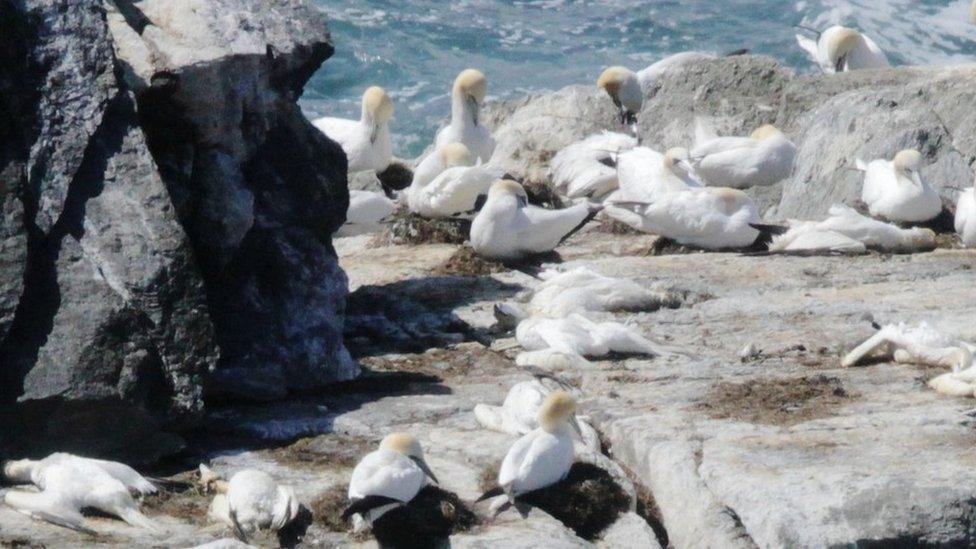New anti-bird flu rules as virus hits flocks in Lewis and Orkney
- Published
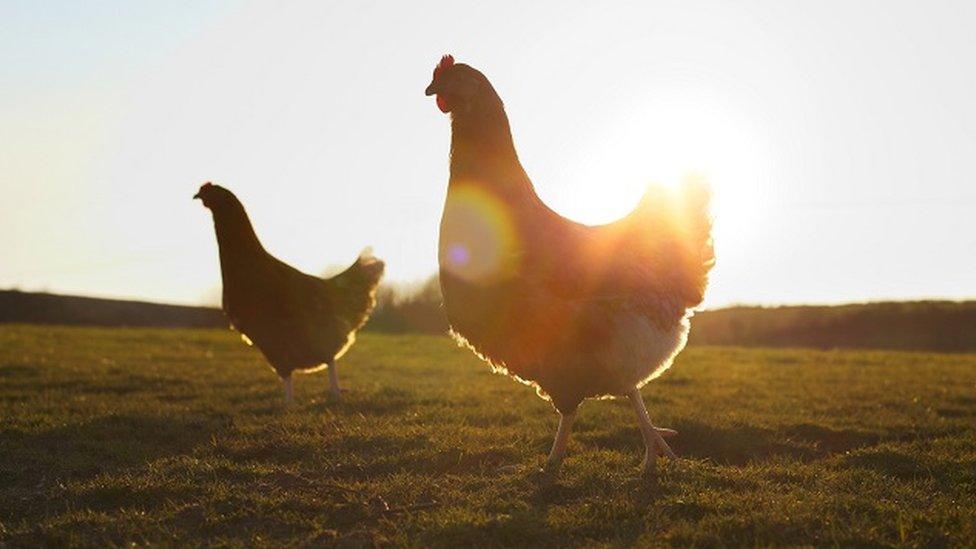
Bird flu has been confirmed in domestic flocks in Orkney and Lewis.
The Scottish government said the small flocks of fowl at Tankerness in Orkney and Great Bernera, Lewis, had been isolated.
Exclusion zones have been put in place in an effort to prevent the spread of the virus, which is fatal for birds.
The UK government has announced all bird keepers in England, Scotland and Wales must implement strict biosecurity measures to stop bird flu spreading.
The Department of Agriculture introduced the measure on Monday amid the country's largest ever outbreak of avian flu.
The chief veterinary officers from England, Scotland and Wales declared an Avian Influenza Prevention Zone (AIPZ) across Great Britain to prevent the disease spreading amongst poultry and captive birds.
They stopped short of asking all bird owners to bring their animals inside.
The risk to human health from the virus remains very low, the UK government said.
Scotland's chief vet Sheila Voas said it was disappointing to have to confirm the two Scottish cases of avian flu, adding it was a "horrible way" for birds to die.
The Orkney case involves a small "backyard" flock, while the Great Bernera one has been described as a small commercial unit.
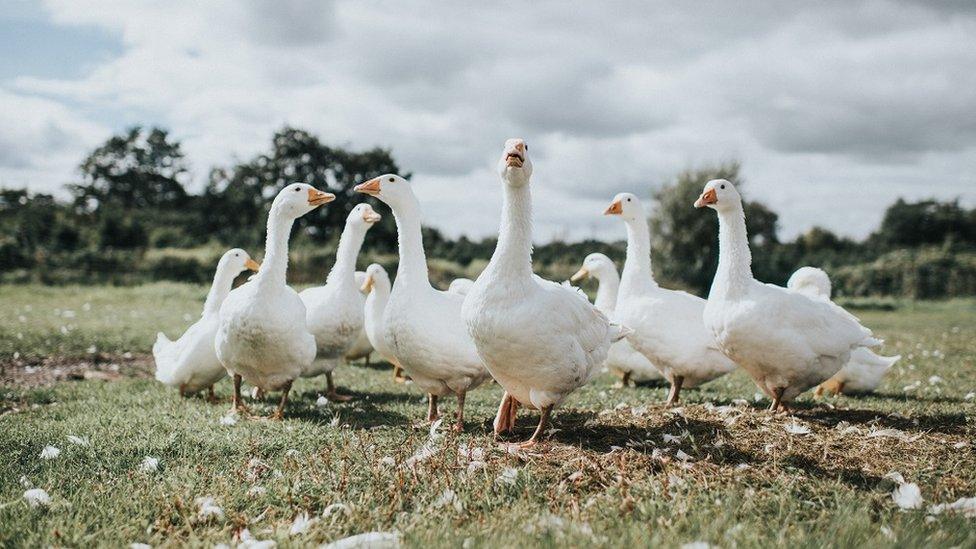
Bird keepers have been urged to take measures to protect their flocks
In July, Scottish government agency NatureScot announced it was setting up a taskforce to respond to bird flu.
The move followed devastating outbreaks over the spring and summer among wild bird populations around Scotland's coast.
The main birds affected were gannets, skuas, geese and gulls.
Shetland was one of the worst affected areas, with carcasses also found from the Mull of Galloway to St Kilda and East Lothian.
'Scrupulous biosecurity'
The latest measures to tackle bird flu among domestic birds has seen keepers with more than 500 birds being asked to restrict access for non-essential people on their sites.
Workers would need to change clothing and footwear before entering bird enclosures and site vehicles would need to be cleaned and disinfected regularly to limit the risk of the disease spreading.
In a statement, the chief veterinary officers of England, Scotland and Wales said: "Bird keepers have faced the largest ever outbreak of avian flu this year and with winter brings an even more increased risk to flocks as migratory birds return to the United Kingdom.
"Scrupulous biosecurity and hygiene measures is the best form of defence."
The UK Health Security Agency advised that the risk to public health from the virus was very low and the Food Standards Agency advised that avian influenzas posed a very low food safety risk for consumers. It said properly cooked poultry and poultry products, including eggs, are safe to eat.
NFU Scotland said the announcement would likely see little change on poultry farms as producers had already been taking precautions due to the continued risk posed by the virus over summer.
But poultry policy manager Penny Middleton added: "Keepers, no matter how large their flock, should familiarise themselves with the requirements of the prevention zone, and the enhanced biosecurity guidance."
She said particular attention should be given to building maintenance, keeping birds away from ponds and disinfecting vehicles coming on to farms.
Related topics
- Published17 October 2022
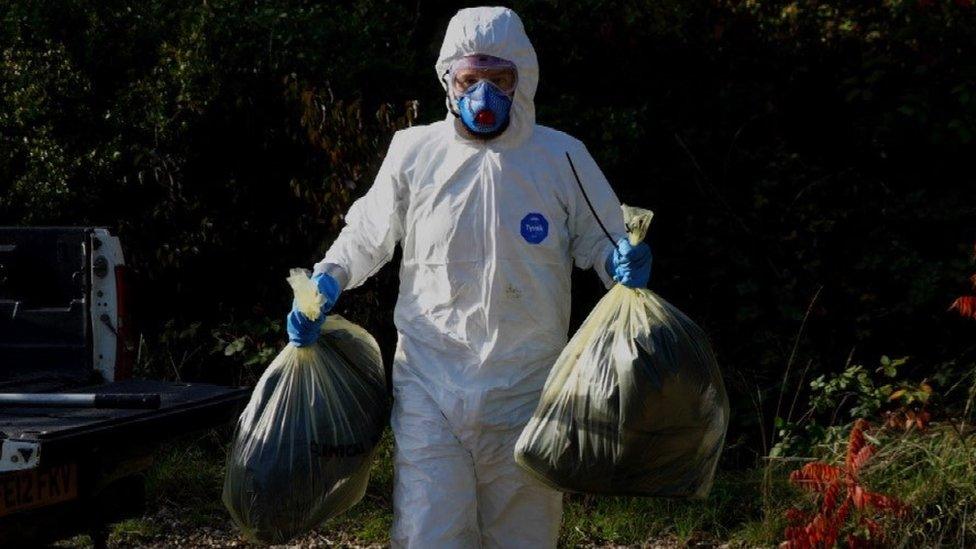
- Published14 July 2022
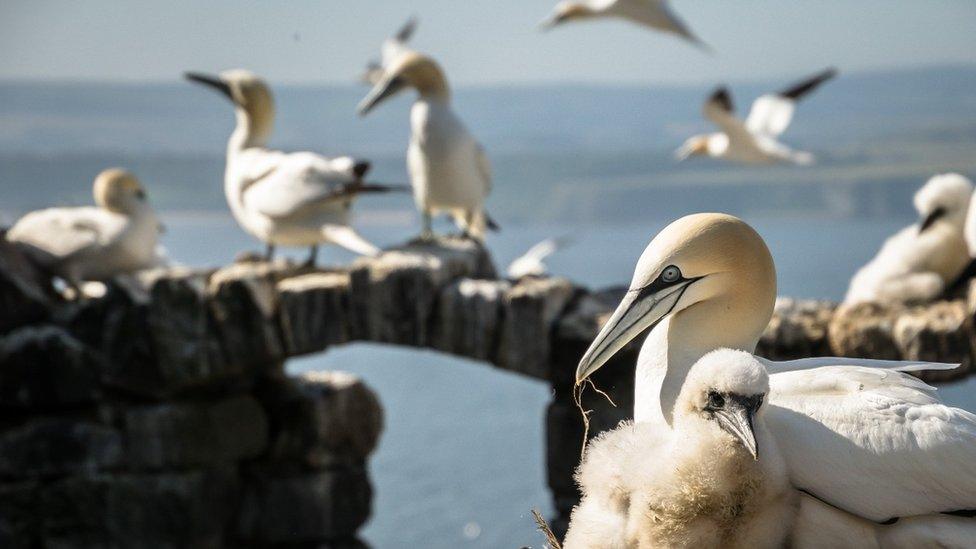
- Published6 June 2022
